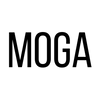You're about to discover an author-illustrator who does things differently. He's been drawing his whole life, telling stories that shake things up, and using his art to shake people's consciences—without ever forgetting to be funny, subtle, and deeply human.
Between dystopian narratives, political engagement, and a passion for shonen, he talks to us here about his career, his influences, and this furious desire to create connections. Even (and especially) when he talks about precarious delivery workers, absurd societies, or single-panel comics.
We'll let you discover this exciting, sincere, and unfiltered encounter.
Can you tell us about your journey as an author and illustrator? What steps led you to become who you are today?
For as long as I can remember, I've always drawn. But it was about 15 years ago that I began to take drawing and storytelling more seriously. Self-taught, I started with digital painting. Very quickly, I was inspired by artists like Pénélope Bagieu, who shared their comics on their blogs, and I followed the same path. This allowed me to share my emotions, especially during difficult times like depression. Over time, my desire to tell longer stories, often fiction, grew. Today, I continue to adapt my format according to the evolution of platforms.
What inspired you to explore narratives that challenge norms?
My inspiration comes from a variety of influences, such as shonen manga or certain Franco-Belgian comic book authors, such as Marc-Antoine Mathieu. I particularly like comics that play with cultural codes and references, because I love recognizing influences in the works I read and making connections between them. This is how I memorize them and keep them in mind.
How have works like Quai d'Orsay or the dystopias of Marc-Antoine Mathieu influenced your work?
Quai d'Orsay was the first political comic I read. It was highly referenced, slightly politically engaged, and it dealt with the behind-the-scenes of politics, which, in my opinion, is the best way to understand it. With Marc-Antoine Mathieu, it was the science-fiction aspect explored without complexes that struck me. I had the impression that his comics didn't tell anything, but just showed cool things, which made me want to do the same. Later, I understood that there was meaning behind his stories. Since then, I've had a hard time not telling structured and coherent stories, even if sometimes I just want to break everything and draw for no particular reason. I haven't found that balance yet.
Why do you believe storytelling is a driving force for change?
I don't know if I've said this before, but I don't think progress is a goal in itself. On the other hand, storytelling is a vector for change because it's a means of communication that doesn't have the same barriers as news, the press, or debates. People approach fiction with more open-mindedness; they're more willing to accept that we have different opinions or that we talk about intimate subjects. This allows us to convey ideas that we might never have been able to express otherwise. When people share their inner experiences, they become more able to collaborate.
How do your works denounce injustices and encourage action?
My latest story aims to create empathy for platform delivery workers. I'm counting on readers to change their habits after reading my work. I also use more direct formats, like strips or stories, to talk about politics and share my knowledge on the subject. Regarding concrete action, I don't really have a strategy beyond conveying ideas. I simply notice that around election time, I manage to convince some abstainers to vote left, so my approach is working, at least a little.
Art as Power: Why is it important for you to convey strong messages through your art, particularly to encourage people to become politically engaged?
I think all artists try to convey messages, otherwise it's too difficult to get up in the morning and draw. Like any job, you do it either to earn money or because you believe in what you do. But artists often start without being paid, so you need a strong motivation to persevere and not give up.
Regarding political engagement, it's not something I particularly care about. I'm not an activist by nature; it's just that political issues fascinate me and inform my work.
What main themes do you explore in your comics, and how do you approach them?
The central theme of my work is the awareness of the horror of the societies we live in, and the question of how to continue to appreciate life without falling into denial. Faced with the reality of the world, we have the choice between turning a blind eye or facing this contradiction while seeking emancipation and happiness. I try to encourage my readers to confront this contradiction, because I believe it creates richer individuals and more fulfilling lives.
It's not that I feel like I'm teaching people anything. Generally, everyone already knows that billions of people suffer from hunger because of our Western lifestyle. But we're surrounded by media devices that push us to forget this. I'm helping to counteract this. For example, they try to make us forget that delivery people often live in poverty. I try to create an emotional connection with a delivery person in my comic to show this reality and how he deals with this contradiction.
What does the award won by Le Monde Brûle at the Angoulême Festival mean to you?
There is no award for digital comics in Angoulême. For me, this award is a form of recognition in this field. I hope that one day there will be an official award for digital comics, and that we will no longer need to print our works to be recognized.
How does Instagram represent a space for meeting and dialogue for you? How do you use this social network today?
I'm more of an influencer than a comic book author, really. Instagram dictates my constraints, and I produce content to reach people and make them react. Technically, if I had to choose between comics and social media, I would probably keep social media and do something else there. If I had more time, I would produce content on multiple platforms to increase my influence. That's what allows me to reach people and, perhaps, change their minds.
What would people be surprised to learn about you?
I read a lot. During Covid, I was reading nearly 300 books a year, and today, I read about 100. Mainly political works, but increasingly literature. I like to get into people's minds, and books are the best way to do that.
What made you want to join the Moga adventure?
It's the enthusiasm and ambition of the creators. Other platforms had already offered to print my works, but it was always an impersonal approach. With Valentin and Dimitri, I had a real discussion; they explained their project to me in detail. It was the first time I had a human exchange and not a generic email. With Moga, I really feel like I'm part of a team, and that's everything I'm looking for in a collaboration.
Discover Alexandre's new comic book now, available in a limited edition and for pre-order on Ulule.


